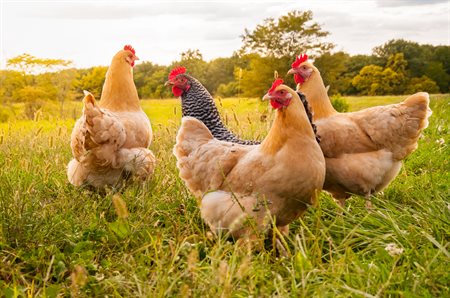Avian influenza: prevention zone declared across Great Britain
In response to the increased findings of Highly Pathogenic Avian Influenza (HPAI) in poultry in England and in wild birds across Great Britain, combined with the increased risk levels, the Chief Veterinary Officer for Wales has agreed to the introduction of housing measures to help protect poultry and other captive birds from avian influenza

Update: 14th December 2021
A message from Wales' Chief Veterinary Officer, Christianne Glossop.
The All-Wales Avian Influenza Prevention Zone (AIPZ) has been extended and updated to include new housing measures which took effect at 00:01 on Monday 29 November 2021.
From 29 November 2021, all bird keepers in Wales are, therefore, required by law to keep their birds indoors and follow strict biosecurity measures in order to limit the spread of disease. These housing measures are intended to build on the enhanced biosecurity requirements that are currently in place in the Avian Influenza Prevention Zone. All keepers (regardless of numbers of birds kept) will therefore continue to be required by law to take a range of biosecurity precautions. Preparatory measures may include checking existing housing structures are fit for housing, considering how welfare of birds can be enhanced while they are housed and, where necessary, putting up additional housing or netting.
To assist keepers with this, guidance and a biosecurity checklist will be made available. Please note – observing the strictest biosecurity measures in all aspects of poultry and bird keeping is the most effective way to reduce the risk of disease incursion to our domestic poultry and other captive birds. It is vital that strict biosecurity measures continue to be observed while birds are housed, as housing does not mitigate the disease risk as much as effective biosecurity. Housing measures will also come into force in England, Scotland and Northern Ireland from 29th November.
A UK wide press release has been issued. Updated biosecurity guidance has been published along with a biosecurity self-assessment which bird keepers can follow, to help keep their birds free of disease.